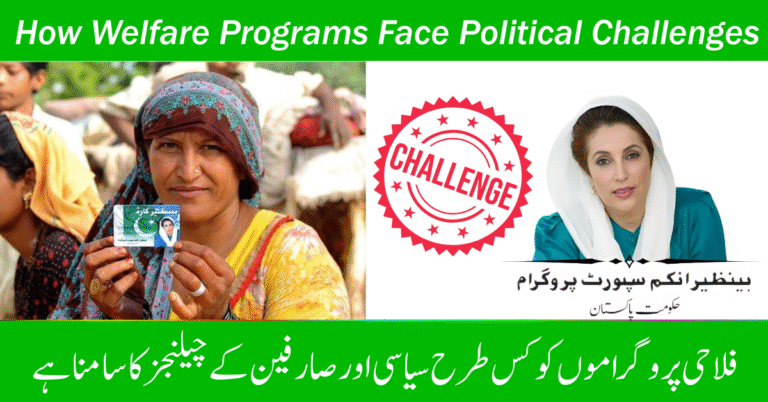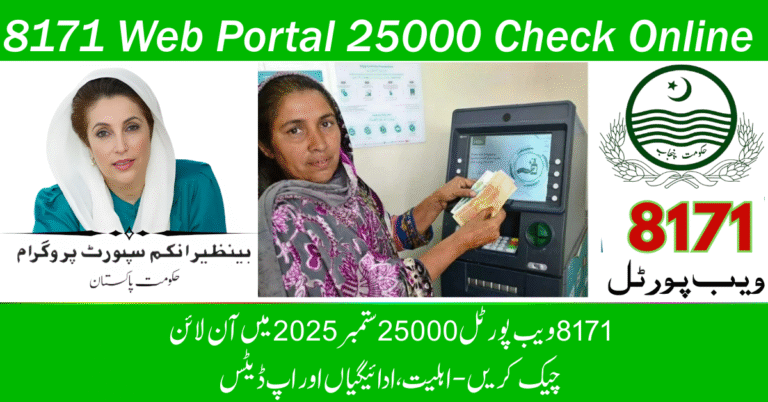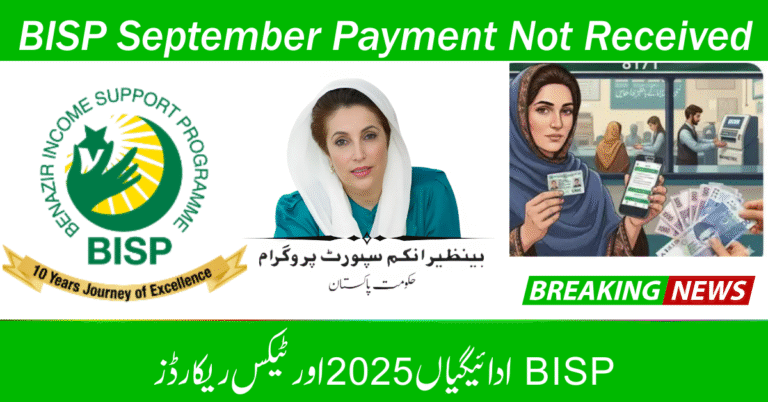BISP 8171 September 2025 Update: Over 8.2 Lakh Women Face Disqualification from Benazir Program
The BISP 8171 September 2025 update has shocked many families across Pakistan as reports confirm that around 8.2 lakh women have been disqualified from the program. This sudden disqualification has raised serious concerns among beneficiaries who depend on this financial aid for household needs.
حکومت پاکستان نے حالیہ مہینوں میں بے نظیر انکم سپورٹ پروگرام (8171) میں بڑے پیمانے پر تصدیقی عمل شروع کیا ہے۔ اس دوران لاکھوں خواتین کے نام فہرست سے خارج کر دیے گئے ہیں کیونکہ ان کا PMT سکور حد سے زیادہ پایا گیا یا وہ مطلوبہ معیار پر پورا نہیں اتر سکیں۔ اس فیصلے نے ملک کے مختلف حصوں میں متاثرہ خاندانوں کو مشکلات میں ڈال دیا ہے۔
Why Were 8.2 Lakh Women Disqualified?
The Benazir Income Support Programme (BISP) has a strict eligibility system based on the Poverty Means Test (PMT) score. According to the September 2025 update, the following reasons caused the disqualification of beneficiaries:
- High PMT Score: Families with a score exceeding the set poverty threshold were excluded.
- Government Employees in Household: If any household member was identified as a government servant, the family became ineligible.
- Property and Assets: Ownership of land, vehicles, or businesses exceeding the allowed limit resulted in disqualification.
- Bank Transactions & Utility Bills: Unusually high transactions or utility bills flagged many families.
This shows that the government is focusing on providing financial aid only to truly deserving families.
Impact of Disqualification on Beneficiaries
The removal of such a large number of women has created mixed reactions in society.
Financial Pressure
For many families, the Rs. 13,500 quarterly installment was the only source of steady financial support. Its removal has left them facing severe financial strain.
Social Concerns
Women who were directly receiving payments for household expenses now feel insecure, as their independence and decision-making power are affected.
Government’s Justification
Officials argue that the disqualification ensures transparency and fairness, preventing misuse of funds. The government has also announced that newly eligible families will be added in place of those removed.
What Beneficiaries Can Do After Disqualification
Families who received a BISP 8171 disqualification notice in September 2025 still have some options:
Recheck Eligibility
- Visit the official BISP 8171 web portal and enter your CNIC.
- Confirm whether the disqualification is final or requires further verification.
File a Complaint
- Affected beneficiaries can use the BISP complaint system.
- Complaints can be registered through the helpline or the nearest BISP Tehsil Office.
Apply for Re-verification
If a family believes their disqualification was unjust, they can request a re-verification survey. For this:
- Visit the 8171 NADRA desk at your Tehsil Office.
- Provide updated household information.
- Submit income and asset details for review.
Government’s Plan for Future Payments
Despite the disqualification of 8.2 lakh women, the government has assured that the September 2025 payments of Rs. 13,500 will continue for all eligible families. Moreover:
- New surveys are being conducted to include fresh deserving families.
- Transparency measures are in place to avoid fraud.
- Beneficiaries will receive SMS updates from 8171 regarding their status.
This ensures that funds reach the most deserving households without interruption.
Public Reactions and Concerns
The disqualification news has triggered strong discussions in the media and among the public.
- Supporters argue that strict checks were needed to prevent misuse of national funds.
- Critics claim that many deserving women were unfairly excluded due to data errors or incomplete verification.
Civil society organizations have urged the government to make the process more transparent and accessible so that genuine beneficiaries are not left behind.
Conclusion
The BISP 8171 September 2025 disqualification of 8.2 lakh women is a major development that highlights the government’s effort to reform the system and eliminate fraud. While this ensures funds are distributed fairly, it has also caused financial distress for thousands of families.
Beneficiaries are encouraged to check their eligibility, file complaints, and apply for re-verification if they believe they were wrongly excluded. The government has promised to expand the program for new deserving households, which may help balance the impact of this large-scale disqualification.


